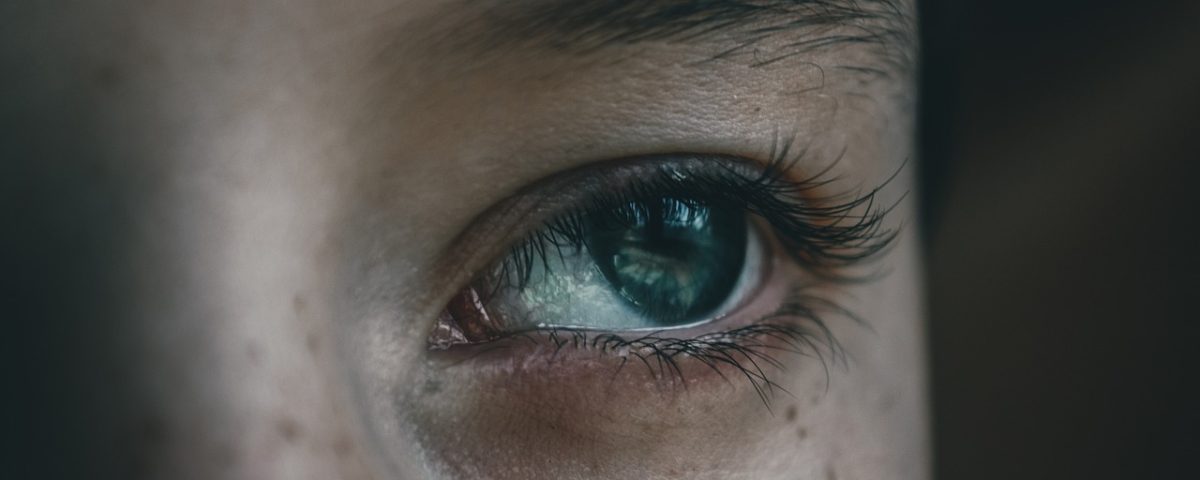To be a Christian, to be moral at all: it requires that you have the capacity to see.
For the Christian, seeing is another way to talk about faith. “Then I saw a new heaven and a new earth;” John saw this. It’s recorded in the Book of Revelation.[1] But to see that he had first to see Jesus, to see who he really is, the Son of the Father. “Show us the Father,” Philip said to Jesus. “Anyone who has seen me has seen the Father,” Jesus replied.[2] But this demands conversion: “[N]o one can see the kingdom of God without being born from above,” he told Nicodemus.[3] This is the gift and the miracle of faith—to see Jesus for who he is, God from God, light from light, one with the Father. This is the first kind of seeing required of the person called a Christian.
But there’s another sort of seeing necessary to be moral. “Blessed are the pure in heart: they shall see God;” Jesus preached that on the mountain.[4] He also told the story of Dives in Lazarus. In Luke, it’s the story of the man who all his life walked by the poor man and simply did not see him or refused to see him. Jesus used the word “torment” to describe what became of the rich man because he refused to see.[5] It is a chilling story, what became of the man who pretended not to see.
I am thinking, of course, of the sobering passage from James which we, fortunate ones, for our own good, should not neglect. I have in past as a preacher done so out of fear, for these are hard words to hear:
Come now, you rich, weep and wail over your impending miseries.
Your wealth has rotted away, your clothes have become moth-eaten,
your gold and silver have corroded,
and that corrosion will be a testimony against you;
it will devour your flesh like a fire.
You have stored up treasure for the last days.
Behold, the wages you withheld from the workers
who harvested your fields are crying aloud;
and the cries of the harvesters
have reached the ears of the Lord of hosts.
You have lived on earth in luxury and pleasure;
you have fattened your hearts for the day of slaughter.
You have condemned;
you have murdered the righteous one;
he offers you no resistance.[6]
I have read to you the whole thing; the whole thing is frightening. And really what can I say as a preacher other than this passage frightens me, and I hope it frightens you. I hope it doesn’t harden your heart; I hope it troubles it, moves it, makes it love a little better. I don’t know what other to say than that I hope that’s what the word of God does to you.
A little over fifty years ago Michael Harrington wrote the book The Other America. It was about poverty in America, and what he said was that the thing about poverty today was that it is hard to see. “The other America, the America of poverty, is hidden today in a way that it never was before.” He called it “a social problem of the eyes.”[7] I think that’s a good way to put it, a right way to put it. We need to see better. We need to improve our vision. We need our eyes checked.
Another book, recent, by Eyal Press is called Dirty Work; he said the same. A feature of the contemporary society, he said, is that we hide our dirty work; our prisons, our food manufacturing, our supply chains, our wars; we’ve made it so that we don’t have to see any of it if we don’t want to. And, of course, that means we do not see “dirty workers,” or as Lawrence Wright called them, “shadow people.”[8] I don’t even have to go to the store; what I eat is delivered, and I don’t even have to open the door until whoever brought my groceries is gone. It’s amazing, distant, convenient. I don’t have to see anyone.
So, what does that mean? To be a Christian, to be moral: it requires that you and I have the capacity to see. So how well do we see? I know there are allegedly more important things going on in the world and in our nation; what we see on the screens of our lives certainly show us something. But the more pressing question is who will you see today and this week? Who will you not see? Who will you pretend not to see or refuse to see? If what Jesus said is true, then these are important questions. Everything may, in fact, hang on these questions.
I don’t know, Jesus talked about “little ones” and cups of water and a reward. He also talked about “unquenchable fire.”[9] That, simply put, is Christianity. So, who and what do you see? Amen.
[1] Revelation 21:1
[2] John 14:8-9
[3] John 3:3
[4] Matthew 5:8
[5] Luke 16:28
[6] James 5:1-6
[7] Michael Harrington, The Other America, 3, 31
[8] Eyal Press, Dirty Work, 157
[9] Mark 9:41-43
© 2024 Rev. Joshua J. Whitfield










